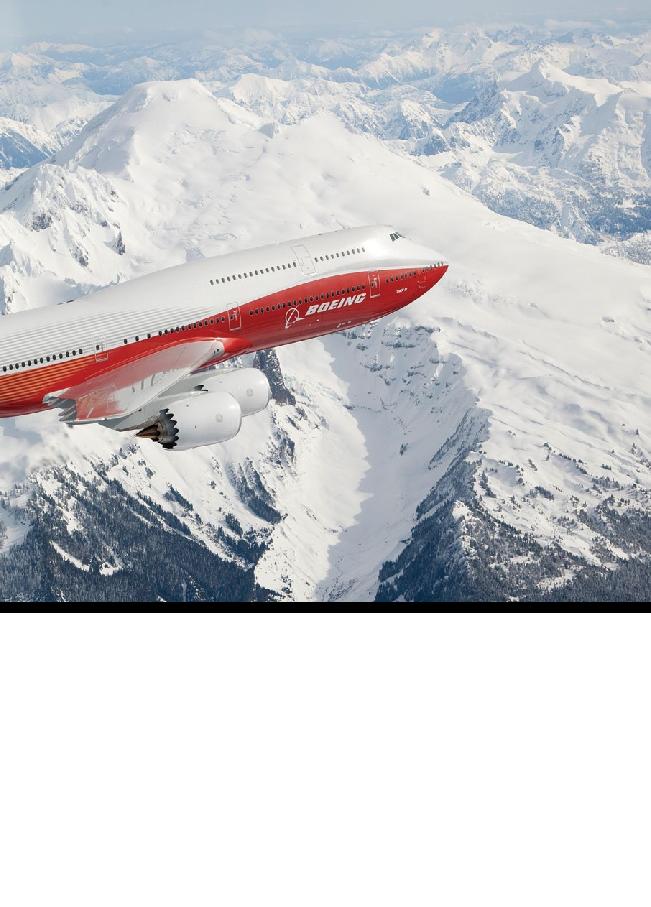
2013 SEPTEMBER Vol. 5 / No. 9 /
GA
23
airlines for fleet restructuring in
the U.H.C.A category has put
the 747-8 Intercontinental as a
distant competitor to some airline
preferences over the larger A380
passenger aircraft carrying in the
region an extra 90 passengers
over the Boeing product.
But be it in the business of
heavy Freight Aircraft the 747-8F
is in a league of its own. There is
no European or American designed
aircraft of this category that compares
with the size of the new B747-8F.
Airbus has since shelved
production plans of an
equivalent A380 freighter.
The 747-8 Freighter is
longer than its fleet predecessor
the 747-400F by 5.6 m (18.3 ft)
and has a maximum structural
payload capability of 140 metric
tonnes with a range of 4,390nm.
Also powered by 787-technology
engines, it will achieve the same
environmental benefits as the 747-8
Intercontinental. The 747-8 Freighter
will have nearly equivalent trip
costs, lower ton-mile costs and
more revenue cargo volume than
its predecessor. The additional 120
cu m (4,245 cu ft) of volume means
the airplane can accommodate four
additional main-deck pallets and
three additional lower-hold pallets.
The vicissitudes of economic
stagnation around the globe is clearly
gauged by diminishing demands
for international air freight.
The timing for improved sales
of this four engine freighter has
come at an awful time. Trade across
the Americas into Europe, Asia and
the Far East has fallen dramatically
according to the International Air
Transport Association (IATA)
Freighters listing at a cost price
of approx $352m now account
for more than half of the unfilled
orders of the 747-8 at Boeing's
Everett plant in Washington
Production of the aircraft
is since reduced to about two
airplanes per month.
Some of these aircraft coming off
the production line are immediately
stored awaiting delivery at a remote
site in the desert of Arizona.
In a report made to Bloomberg
financial news r, a spokesman
for Boeing has said the company
will continue storing the 747-8's
because of a mismatch between
production and delivery.
Eric Lindblad the program
manager said "because we build
it in a given month doesn't
mean the aircraft will actually
be delivered in that month.".
While production and future
demand for the four engine
747-8 is under pressure, The
success of Boeings twin engine
wide body 777 freighter and
passenger airliner is proving to
be a successful alternative and
hurting future prospects for the
larger but similarly effective
B747-8 quad engine aircraft.
Randy Tinseth, Marketing Vice
President for Boeings airplane
unit remains bullish about the
prospects for the 747 programme
citing forecasts that Air Cargo
Traffic will grow at an average of
5 percent per year over the next
two decades and this growth will
support the value of the 747-8F.. ·

